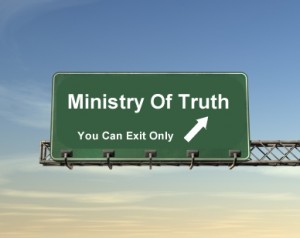 In today’s Wall Street Journal “Sightings” column I write about a recent European Union court ruling about the “right to be forgotten,” and what it could mean to historical truth. Here’s an excerpt.
In today’s Wall Street Journal “Sightings” column I write about a recent European Union court ruling about the “right to be forgotten,” and what it could mean to historical truth. Here’s an excerpt.
* * *
If you’re an artist, getting panned is part of life. Like the common cold, everybody gets a bad review sooner or later, and though it’s said that Lola Montez threatened to horsewhip a critic who roasted her, there’s rarely anything to be done beyond toughing it out. But Dejan Lazić thinks otherwise—and he thinks he’s got the law on his side, too.
Mr. Lazić, a Croatian pianist who lives in Amsterdam, gave a recital at the Kennedy Center four years ago that didn’t please Anne Midgette, the classical music critic of the Washington Post, who called his playing “self-conscious” and “cartoon-like” in a mixed but basically negative review. That was the end of that—until the Post received a letter from Mr. Lazić in September requesting that Ms. Midgette’s review be scrubbed from the Web. When she failed to reply, he upped the ante by claiming that it was “defamatory, offensive and mean-spirited” and thus violates his legal right to be forgotten.
Say what?
The basis for Mr. Lazić’s claim was a ruling in May by the European Union’s top court that EU citizens have a legal right to control the availability of “inadequate, irrelevant or no longer relevant or excessive” information about them, material that would otherwise remain permanently available via Google and other search engines. Since Ms. Midgette’s 2010 review is one of the first things that comes up whenever you search Mr. Lazić’s name, he wants the Post to erase it. If they don’t oblige, he is now suggesting that he’ll officially petition Google to stop linking to the review on its European sites….
All this serves as a valuable reminder of how our existing notions of “truth” are being undermined by the migration of information from the printed page to cyberspace, which is infinitely malleable. George Orwell predicted as much when he wrote in “Nineteen Eighty-Four” of the ceaseless and insidious activities of the Ministry of Truth, one of whose functions was to alter previously published newspaper, magazine and encyclopedia articles to bring them into more perfect accord with the latest dictates of Big Brother. Any evidence to the contrary was promptly dropped down the nearest “memory hole” and whisked away to an incinerator. Today such rewriting is vastly easier: Any editor who longs to change history need only alter the electronic text of his online edition, instantly and at will. It’s carved in mush, not stone….
* * *
Read the whole thing here.
The 1956 film version of Nineteen Eighty-Four, directed by Michael Anderson and starring Edmond O’Brien and Michael Redgrave. The score is by Malcolm Arnold:
